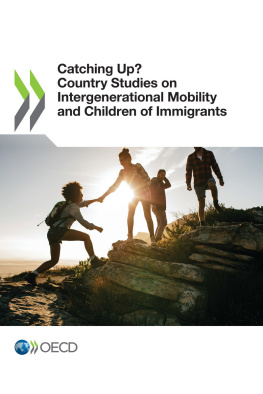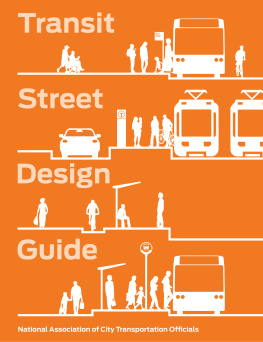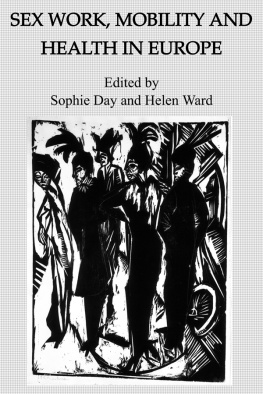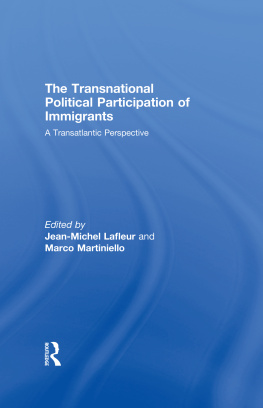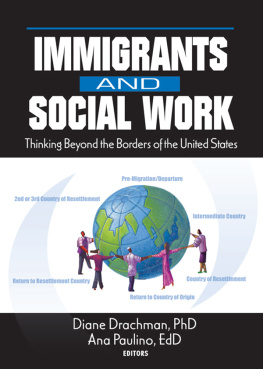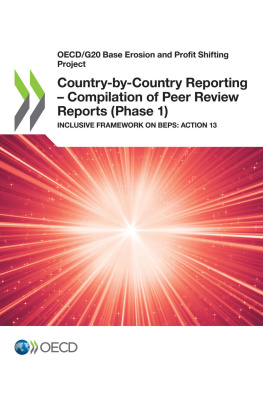coll. - Catching up? Country studies on intergenerational mobility and children of immigrants
Here you can read online coll. - Catching up? Country studies on intergenerational mobility and children of immigrants full text of the book (entire story) in english for free. Download pdf and epub, get meaning, cover and reviews about this ebook. year: 2018, publisher: OECD, genre: Children. Description of the work, (preface) as well as reviews are available. Best literature library LitArk.com created for fans of good reading and offers a wide selection of genres:
Romance novel
Science fiction
Adventure
Detective
Science
History
Home and family
Prose
Art
Politics
Computer
Non-fiction
Religion
Business
Children
Humor
Choose a favorite category and find really read worthwhile books. Enjoy immersion in the world of imagination, feel the emotions of the characters or learn something new for yourself, make an fascinating discovery.
Catching up? Country studies on intergenerational mobility and children of immigrants: summary, description and annotation
We offer to read an annotation, description, summary or preface (depends on what the author of the book "Catching up? Country studies on intergenerational mobility and children of immigrants" wrote himself). If you haven't found the necessary information about the book — write in the comments, we will try to find it.
coll.: author's other books
Who wrote Catching up? Country studies on intergenerational mobility and children of immigrants? Find out the surname, the name of the author of the book and a list of all author's works by series.
Catching up? Country studies on intergenerational mobility and children of immigrants — read online for free the complete book (whole text) full work
Below is the text of the book, divided by pages. System saving the place of the last page read, allows you to conveniently read the book "Catching up? Country studies on intergenerational mobility and children of immigrants" online for free, without having to search again every time where you left off. Put a bookmark, and you can go to the page where you finished reading at any time.
Font size:
Interval:
Bookmark:
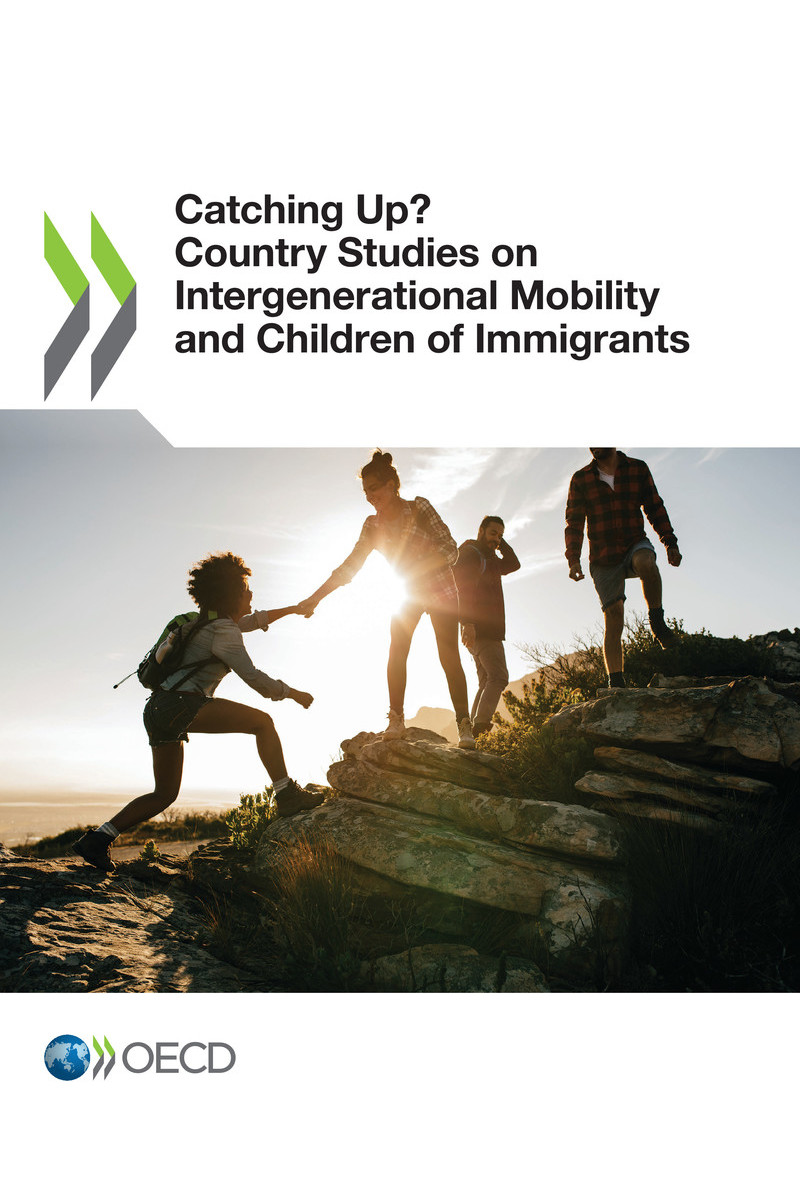
OECD (2018), Catching Up? Country Studies on Intergenerational Mobility and Children of Immigrants , OECD Publishing, Paris.
http://dx.doi.org/10.1787/9789264301030-en
Social mobility is a key objective for policy to foster inclusive economies and societies. How immigrants and their children, who are now accounting for almost one-in-five persons in the OECD, are faring in this respect, is particularly important for social cohesion. It is not surprising that many persons who have immigrated as adults face specific difficulties to progress, linked among others to the fact that they have been raised and educated in a different environment and education system, and that they may not have the same command of the host language as the native-born. One would, however, generally expect that for children of immigrants, especially those who are native-born, these barriers would disappear and they could enjoy the same opportunity for social mobility as their peers. Yet, evidence from previous work by the OECD and the European Union suggests that native-born children of immigrants tend to still lag behind their peers with native-born parents in many OECD countries, especially in Europe. This is particularly worrying since these are a large and growing group in most countries.
Against this backdrop, the OECD, with the support of the European Union, has provided an in-depth analysis of the links between parental disadvantage for immigrants and the outcomes of their children across EU and OECD countries, in comparison with native-born parents and their children. A first publication, Catching Up? Intergenerational Mobility and Children of Immigrants , published in late 2017, synthesised the results of this two-year project that was carried out by Eva Degler, Dimitris Mavridis and Almedina Music under the co-ordination of Thomas Liebig, all from the OECDs International Migration Division.
As part of this project, the OECD has commissioned a number of country background papers by leading experts. This publication presents these country studies and has been prepared with financial support of the European Union Programme for Employment and Social Innovation EaSI (2014-20). The opinions expressed and arguments employed herein do not necessarily reflect the official views of the OECD member countries or of the European Union.
The publication was prepared with the analytical support of Rhea Ravenna Sohst and editorial support of Liv Gudmundson, Randy Holden and Lucy Hullet. It has also benefited from comments by Laurent Aujean, Francesca Borgonovi, Jean-Christophe Dumont, Stefano Filauro and Sonia Jemmotte, as well as from inputs from other policy officers in DG-EMPL and DG-HOME.
The consequences of past immigration and integration are reflected in todays intergenerational mobility of immigrants native-born children. This publication presents a series of country case studies. Among these OECD countries, Austria, France, Germany and the Netherlands share the experience of large-scale low-educated immigration, the so-called guest workers, in the post-World War II economic boom period. The native-born children of these immigrants generally had relatively lower starting conditions in terms of socio-economic characteristics compared to their peers with native-born parents. In contrast, immigration to Canada has been largely high-educated, although not all immigrant groups have the same background, and intergenerational mobility patterns vary across groups. The native-born children of many Asian immigrants in Canada, for example, have a remarkably high university attendance rate that is relatively insensitive to parents education, family income and even their own high school results.
Data from France suggest that immigrant parents frequently have high aspirations for their children, more than native-born parents in a similar situation. Yet they do not always have the capabilities or the institutional knowledge to support their children in the same way that native parents can. For example, less than 5% of children with Turkish immigrant parents receive help with homework from their mothers in France compared to over 60% of children with native-born mothers. Pre-school is of particular importance to ensure a head start, but children of immigrants are frequently underrepresented. In Austria in 2011, children whose parents were born outside of the EU were six times less likely to attend preschool than children whose parents were born in Austria. Evidence from the Netherlands also suggests that a fair share of children of immigrants at risk are not reached by pre-school offers.
A common finding across countries is that the education and labour market trajectories of immigrants children are generally less determined by their parents than is the case for children of native-born parents. Because of their generally lower starting points, children of immigrants in Europe are more likely to move up from one generation to the next than the children of natives. This is particularly visible among the group with a Turkish immigrant background in Germany: Almost 50% of women and about 30% of men had no educational degree in 2012. In contrast, less than 10% of their children born in Germany had left school without any diploma. Interestingly, the share of Turkish immigrant women holding no educational degree was much higher in 2012 (49%) than in 2000 (33%).
Gender differences are highlighted in the country studies. In France, Sweden, the Netherlands and Canada, daughters of immigrants outperform sons in school but not in Austria and the United States. The better performance of women is particularly pronounced among native-born whose parents came from the Maghreb in France, the Netherlands, and Sweden. Indeed in Sweden, there is no significant relationship between their education and that of their mothers. For sons of immigrants, however, low levels of mothers education seem to have a particularly negative impact on educational attainment. One explanation put forward is the potential for bias and negative stereotyping that could affect boys more than girls. In France, sons of immigrants report unfair treatment at school more often than daughters. Yet, despite the good performance of many immigrants daughters at school, they tend to be more disadvantaged than their male counterparts when entering the labour market. Fewer daughters of immigrants are active in the labour market and more remain at home, especially after they have their first child. In the Netherlands, one-quarter of the daughters of Turkish and Moroccan immigrants stop working in a paid job after having their first child, compared with 10% of women with native Dutch parents.
Font size:
Interval:
Bookmark:
Similar books «Catching up? Country studies on intergenerational mobility and children of immigrants»
Look at similar books to Catching up? Country studies on intergenerational mobility and children of immigrants. We have selected literature similar in name and meaning in the hope of providing readers with more options to find new, interesting, not yet read works.
Discussion, reviews of the book Catching up? Country studies on intergenerational mobility and children of immigrants and just readers' own opinions. Leave your comments, write what you think about the work, its meaning or the main characters. Specify what exactly you liked and what you didn't like, and why you think so.

